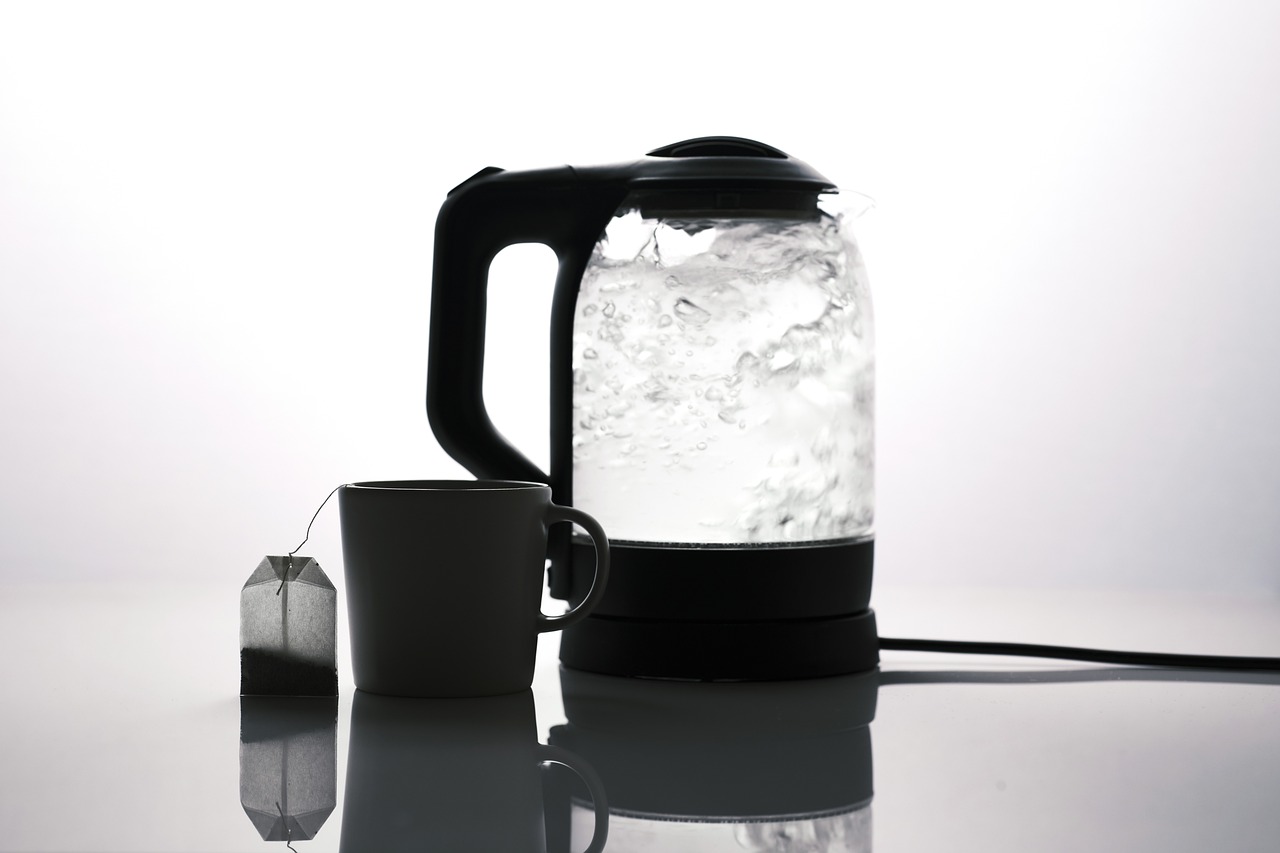This comprehensive guide delves into the intricacies of 30-day water fasting, offering valuable insights on preparation, health benefits, potential risks, and practical tips for a successful fasting experience. Water fasting is a significant commitment that requires careful planning and a clear understanding of its implications.
What is Water Fasting?
Water fasting is a method of abstaining from all food and caloric beverages, relying solely on water for sustenance over a designated period. Historically, fasting has been practiced for various reasons, including spiritual, health, and detoxification purposes. In recent years, it has gained traction as a means to improve overall health and well-being.
Health Benefits of 30-Day Water Fasting
Engaging in a 30-day water fast can lead to numerous health benefits. Some of the most notable advantages include:
- Weight Loss and Body Composition: One of the primary outcomes of water fasting is significant weight loss. Studies have shown that fasting can lead to a reduction in body fat and improved muscle-to-fat ratio.
- Metabolic Health Improvements: Water fasting may enhance metabolic markers, including insulin sensitivity and blood sugar levels, which are crucial for preventing diabetes and other metabolic disorders.
- Mental Clarity and Focus: Many individuals report increased mental clarity and focus during fasting, attributed to reduced inflammation and improved brain function.
Preparing for a 30-Day Water Fast
Preparation is essential for a successful water fast. Here are some crucial steps to consider:
- Dietary Changes Before Fasting: Gradually reduce your food intake a week prior to the fast. Focus on whole foods and eliminate processed items to ease the transition.
- Mental Preparation and Mindset: Cultivating a positive mindset is vital. Techniques such as meditation and visualization can help strengthen your resolve and commitment to the fasting journey.
What to Expect During a 30-Day Water Fast
Understanding the physical and emotional experiences during a prolonged fast can help manage expectations. Common physical symptoms may include:
- Fatigue
- Headaches
- Detox symptoms like nausea or skin changes
Emotionally, fasting can lead to mood swings and heightened emotional awareness. Being prepared for these fluctuations is essential for maintaining mental stability.
Potential Risks and Safety Considerations
While water fasting can offer benefits, it is not without risks. Certain individuals should avoid fasting, including:
- Those with existing medical conditions such as diabetes or heart disease.
- Pregnant or breastfeeding women.
Recognizing warning signs that indicate it’s time to break the fast is crucial for health. Symptoms such as dizziness, extreme fatigue, or persistent nausea should prompt immediate action.
Tips for Successfully Completing a 30-Day Water Fast
To ensure success throughout your fasting journey, consider the following:
- Staying Hydrated and Electrolyte Balance: Maintaining hydration is critical. Aim to drink adequate amounts of water and consider electrolyte supplementation to prevent imbalances.
- Support Systems and Community Resources: Engaging with support groups, either online or in-person, can provide motivation and encouragement, making the fasting experience more manageable.
Embarking on a 30-day water fast is a profound journey that requires careful consideration and preparation. By understanding the benefits, risks, and strategies for success, you can approach this challenge with confidence and resilience.

What is Water Fasting?
Water fasting is a practice that involves abstaining from all food and caloric beverages, consuming only water for a designated period. This method of fasting has gained popularity in recent years, but its roots can be traced back to ancient civilizations. Throughout history, various cultures have embraced fasting for spiritual, health, and healing purposes. In this section, we will delve into the fundamentals of water fasting and explore its historical context.
At its core, water fasting is a form of intermittent fasting where individuals consume nothing but water for a specified duration, which can range from a single day to several weeks. The primary goal is to allow the body to enter a state of ketosis, where it begins to burn stored fat for energy instead of relying on food intake. This metabolic shift can lead to various health benefits, including weight loss and improved metabolic function.
Historically, fasting has been practiced across different cultures and religions. For instance, in ancient Greece, philosophers like Socrates and Plato endorsed fasting as a means of achieving mental clarity and spiritual enlightenment. Similarly, many religious traditions, such as Christianity, Islam, and Buddhism, incorporate fasting as a form of purification and self-discipline. These historical practices highlight the enduring significance of fasting in human culture.
In modern times, water fasting has been researched for its potential health benefits. Studies suggest that fasting may have positive effects on cellular repair, inflammation reduction, and even longevity. Many individuals embark on water fasts with the intention of detoxifying their bodies, improving mental clarity, and enhancing overall well-being.
However, it is essential to approach water fasting with caution. While many people report positive experiences, fasting is not suitable for everyone. Individuals with certain medical conditions or those who are pregnant should consult with a healthcare professional before attempting a water fast. Understanding the risks and benefits associated with water fasting is crucial for anyone considering this practice.
In summary, water fasting is a method that involves consuming only water for a specific period, with historical roots in various cultures and religions. As interest in the health benefits of fasting grows, it is vital to educate oneself on the practice’s fundamentals and approach it safely and responsibly.
| Key Aspects of Water Fasting | Description |
|---|---|
| Duration | Can range from 24 hours to 30 days or more. |
| Benefits | Weight loss, improved metabolism, detoxification. |
| Historical Context | Practiced in ancient cultures for health and spiritual reasons. |
| Risks | Not suitable for everyone; consult a healthcare professional. |
- Consult a doctor before starting a long fast.
- Stay hydrated and monitor your body’s response.
- Be aware of common symptoms during fasting.

Health Benefits of 30-Day Water Fasting
Engaging in a 30-day water fast can yield numerous health benefits that extend beyond mere weight loss. This fasting method involves consuming only water for an entire month, allowing the body to enter a state of autophagy, where it begins to repair and rejuvenate itself. In this section, we will delve into the potential advantages of a prolonged water fast, including weight loss, improved metabolism, and enhanced mental clarity.
- Weight Loss and Body Composition: One of the most immediate and noticeable effects of a 30-day water fast is significant weight loss. As the body exhausts its glycogen stores, it begins to burn fat for energy, leading to a reduction in body fat percentage. Studies show that individuals can lose anywhere from 1 to 2 pounds per day during the initial stages of fasting. This rapid weight loss can also help kickstart healthier lifestyle choices post-fast.
- Metabolic Health Improvements: Water fasting can lead to remarkable improvements in metabolic health. Research indicates that prolonged fasting can enhance insulin sensitivity, which is crucial for maintaining healthy blood sugar levels. Additionally, fasting may help lower cholesterol and triglyceride levels, reducing the risk of cardiovascular diseases. The metabolic reset that occurs during fasting can lead to improved energy levels and overall vitality.
- Enhanced Mental Clarity: Many individuals report heightened mental clarity and focus during a water fast. This phenomenon is attributed to the body’s switch from glucose to ketones as a primary energy source. Ketones are known to provide a more efficient fuel for the brain, which can lead to improved cognitive function. Furthermore, fasting may promote neurogenesis, the process of generating new neurons, contributing to better brain health over time.
- Detoxification: A 30-day water fast allows the body to detoxify itself naturally. By abstaining from food, the digestive system gets a much-needed break, enabling the liver and kidneys to focus on eliminating toxins. This detoxification process can lead to clearer skin, improved digestion, and an overall sense of well-being.
- Reduced Inflammation: Chronic inflammation is linked to numerous health issues, including heart disease and autoimmune disorders. Water fasting has been shown to reduce markers of inflammation in the body, which can lead to better health outcomes and a lower risk of chronic diseases.
While the benefits of a 30-day water fast are compelling, it is essential to approach this practice with caution. Proper preparation and understanding of one’s body are crucial for a successful fasting experience. Always consult with a healthcare professional before embarking on such an intensive fasting regimen, especially if you have underlying health conditions.
Weight Loss and Body Composition
Weight loss is one of the most significant and observable outcomes of water fasting. During this process, the body undergoes several physiological changes that promote fat loss and alter body composition. This section will explore how fasting influences these changes, supported by scientific studies and expert insights.
When an individual engages in a 30-day water fast, the body enters a state of ketosis after depleting its glycogen stores. In this state, the body shifts from using glucose as its primary energy source to burning fat. According to a study published in the American Journal of Clinical Nutrition, participants who underwent prolonged fasting experienced significant reductions in body fat percentage, demonstrating that fasting can effectively promote fat loss.
Furthermore, water fasting influences hormonal regulation. As insulin levels decrease, the body becomes more efficient at mobilizing stored fat for energy. This hormonal shift not only aids in fat loss but also promotes a favorable body composition by preserving lean muscle mass. Research from the Journal of Obesity indicates that individuals who fasted showed improved muscle retention compared to those who followed a conventional calorie-restricted diet.
Another critical aspect of fasting is its impact on metabolism. During fasting, metabolic rate may initially decrease due to reduced caloric intake. However, after a few days, the body adapts by increasing fat oxidation, which can lead to a net increase in energy expenditure. This phenomenon is supported by findings from the Journal of Clinical Endocrinology and Metabolism, which highlight how short-term fasting can enhance metabolic flexibility and efficiency.
Moreover, water fasting has been shown to reduce inflammation, which can further support weight loss efforts. Chronic inflammation is often linked to obesity and metabolic syndrome. By reducing inflammatory markers, fasting may help improve overall metabolic health, making it easier for individuals to lose weight and maintain a healthy body composition.
It is essential to note that while water fasting can lead to significant weight loss, it is not suitable for everyone. Individuals with certain medical conditions, such as diabetes or eating disorders, should consult a healthcare professional before attempting prolonged fasting. Additionally, proper refeeding after the fasting period is crucial to avoid potential weight regain and ensure a balanced nutrient intake.
In summary, the weight loss experienced during a 30-day water fast is a multifaceted process influenced by hormonal changes, metabolic adaptations, and reductions in inflammation. Supported by scientific research, water fasting can be an effective method for achieving desirable body composition and fat loss. However, it is vital to approach fasting with caution and seek guidance from healthcare professionals to ensure safety and effectiveness.
Metabolic Health Improvements
Water fasting is gaining attention not only for its potential weight loss benefits but also for its significant impact on metabolic health. This section delves into how abstaining from food and caloric beverages can lead to improvements in various metabolic markers, particularly focusing on insulin sensitivity, blood sugar levels, and cholesterol profiles.
One of the primary benefits of water fasting is its ability to enhance insulin sensitivity. Insulin is a hormone crucial for regulating blood sugar levels. When insulin sensitivity improves, the body becomes more efficient at utilizing glucose, which can help in preventing conditions such as type 2 diabetes. Research indicates that prolonged fasting can lead to a marked decrease in insulin levels, allowing the body to better manage blood sugar. This effect is particularly beneficial for individuals who may be at risk for metabolic syndrome or those already experiencing insulin resistance.
Next, let’s explore how water fasting affects blood sugar levels. During a water fast, the body shifts from using glucose as its primary source of energy to utilizing fat stores. This metabolic shift can result in lower blood sugar levels, which is essential for maintaining overall health. Studies have shown that individuals who engage in intermittent fasting or prolonged fasting often experience a significant reduction in fasting blood glucose levels, which can contribute to better overall glycemic control.
Additionally, water fasting can have a positive impact on cholesterol profiles. High levels of LDL cholesterol and triglycerides are associated with an increased risk of cardiovascular diseases. Research suggests that fasting may lead to a reduction in these harmful lipids, while potentially increasing HDL cholesterol, known as the “good” cholesterol. This alteration in lipid profiles can enhance heart health and reduce the risk of heart-related issues.
| Metabolic Marker | Effect of Water Fasting |
|---|---|
| Insulin Sensitivity | Improves, leading to better glucose management |
| Blood Sugar Levels | Significantly lowers fasting blood glucose |
| Cholesterol Profiles | Reduces LDL and triglycerides, increases HDL |
It’s important to note that while the benefits of water fasting on metabolic health are promising, individual results may vary. Factors such as age, gender, and pre-existing health conditions can influence outcomes. Therefore, it is advisable for individuals to consult healthcare professionals before embarking on a prolonged fasting regimen.
In summary, water fasting can lead to significant improvements in metabolic markers. Enhanced insulin sensitivity, lowered blood sugar levels, and improved cholesterol profiles are just a few of the benefits that can arise from this practice. As research continues to explore the depths of fasting, it becomes increasingly clear that this ancient practice may hold the key to modern metabolic health.

Preparing for a 30-Day Water Fast
Embarking on a 30-day water fast is not a decision to be taken lightly. Preparation is essential to ensure a smooth transition and to maximize the benefits of fasting. This section will outline practical steps to take before starting your fast, including necessary dietary adjustments and mental readiness.
Dietary Adjustments: Transitioning Your Eating Habits
Before you begin your water fast, it is crucial to adjust your diet gradually. This helps to minimize withdrawal symptoms and prepares your body for the fasting period. Here are some steps to consider:
- Eliminate Processed Foods: Start by removing processed and high-sugar foods from your diet at least a week before your fast. This helps to reduce cravings and stabilizes blood sugar levels.
- Incorporate Whole Foods: Focus on consuming whole, nutrient-dense foods such as fruits, vegetables, whole grains, and lean proteins. This will provide your body with essential nutrients and make the transition smoother.
- Gradually Reduce Caloric Intake: In the days leading up to your fast, gradually decrease your caloric intake. This can help your body adjust to the upcoming lack of food.
- Stay Hydrated: Increase your water intake to prepare your body for the fast. Adequate hydration is crucial for overall health and will ease the transition into fasting.
Mental Preparation: Cultivating a Strong Mindset
Fasting is as much a mental challenge as it is a physical one. Preparing your mind is just as important as preparing your body. Here are some strategies to enhance your mental readiness:
- Set Clear Goals: Define your reasons for fasting. Whether it’s for health benefits, detoxification, or spiritual growth, having clear objectives will keep you motivated.
- Visualize Success: Spend time visualizing your success throughout the fasting period. Imagine overcoming challenges and achieving your goals to reinforce your commitment.
- Practice Mindfulness: Engage in mindfulness or meditation practices to help calm your mind and prepare yourself for the emotional ups and downs that may occur during the fast.
- Connect with Supportive Communities: Seek out online forums or local groups focused on fasting. Sharing experiences and receiving encouragement from others can significantly enhance your mental strength.
Understanding Potential Challenges
Being aware of the challenges you may face during a long fast can help you better prepare. Common issues include:
- Hunger Pangs: These are likely to occur, especially in the initial days. Remind yourself of your goals and stay focused on your commitment.
- Fatigue: As your body adjusts, you may feel tired. Ensure you rest adequately and listen to your body’s needs.
- Emotional Fluctuations: Fasting can lead to mood swings. Practicing mindfulness can help you manage these emotional changes effectively.
In conclusion, preparing for a 30-day water fast involves careful planning and mental fortitude. By making dietary adjustments and fostering a positive mindset, you can set yourself up for a successful fasting experience. Remember, the journey is as important as the destination, and being well-prepared will help you navigate the challenges ahead.
Dietary Changes Before Fasting
Preparing for a 30-day water fast requires careful planning, especially when it comes to your diet. Gradually reducing food intake leading up to the fast can ease the transition and help your body adjust to the upcoming changes. This section will provide essential tips on how to prepare your diet for optimal fasting conditions.
- Start Slowly: Begin by eliminating processed foods, sugars, and high-calorie snacks from your diet at least a week before the fast. This will help your body acclimate to a lower caloric intake.
- Incorporate Whole Foods: Focus on whole, nutrient-dense foods such as fruits, vegetables, whole grains, and lean proteins. These foods will provide essential nutrients while reducing your overall caloric intake.
- Reduce Portion Sizes: Gradually decrease portion sizes over the week leading up to your fast. This can help prevent discomfort during the fasting period and ease your body into the transition.
- Stay Hydrated: Increase your water intake to ensure you are well-hydrated before starting the fast. Proper hydration will help prepare your body for the fasting process.
- Plan Your Last Meals: Choose your last meals wisely. Opt for lighter meals that are easy to digest, such as soups or salads, to minimize digestive discomfort as you enter your fast.
Additionally, consider incorporating intermittent fasting into your routine in the days leading up to your 30-day water fast. This practice can help your body adapt to periods of no food and make the transition smoother.
As you prepare for your fast, it’s also beneficial to pay attention to your mental state. A positive mindset can greatly influence your fasting experience. Engage in mindfulness practices such as meditation or yoga to enhance mental clarity and focus.
In summary, the key to a successful transition into a 30-day water fast lies in gradual dietary changes. By implementing the tips outlined above, you can prepare your body effectively, ensuring a more manageable fasting experience and maximizing the potential health benefits.
Mental Preparation and Mindset
Embarking on a 30-day water fast is not just a physical challenge; it is also a significant mental journey. A positive mindset is essential for enduring a long fast, as it can greatly influence your experience and success. In this section, we will explore various techniques to cultivate mental resilience and strengthen your commitment to the fasting journey.
- Set Clear Intentions: Before starting your fast, take time to reflect on your reasons for undertaking this challenge. Whether it’s for health benefits, spiritual growth, or personal discipline, having clear intentions can help you stay focused and motivated.
- Visualize Success: Visualization is a powerful technique. Spend a few minutes each day imagining yourself successfully completing the fast. Picture how you will feel physically and mentally at the end of the 30 days. This practice can enhance your commitment and help you push through difficult moments.
- Practice Mindfulness: Incorporating mindfulness techniques such as meditation or deep breathing exercises can help you manage stress and anxiety during the fasting period. These practices can ground you and provide clarity when cravings and challenges arise.
- Stay Informed: Knowledge is empowering. Educate yourself about the fasting process, including what to expect physically and emotionally. Understanding the science behind fasting can alleviate fears and uncertainties, making the journey feel more manageable.
- Establish a Support System: Surround yourself with supportive friends or family members who understand your goals. Joining online fasting communities can also provide encouragement and shared experiences, making you feel less isolated during your fast.
- Document Your Journey: Keeping a journal during your fast can be a therapeutic way to process your thoughts and emotions. Write about your daily experiences, challenges, and triumphs. Reflecting on your journey can reinforce your commitment and provide insights for future fasts.
As you navigate the ups and downs of your fasting experience, remember that mental resilience is built over time. Embrace the challenges as opportunities for growth and self-discovery. By employing these techniques, you can cultivate a mindset that not only supports your fasting journey but also enhances your overall well-being.
Ultimately, the journey of a 30-day water fast is as much about mental strength as it is about physical endurance. By focusing on building a positive mindset and employing these strategies, you can transform your fasting experience into a profound journey of personal development.

What to Expect During a 30-Day Water Fast
Embarking on a 30-day water fast is a significant commitment that requires both physical and mental preparation. Understanding the journey ahead can help you manage expectations and navigate the various challenges that may arise. This section will explore the physical and emotional experiences you might encounter throughout the fasting period, offering insights to better equip you for this transformative experience.
Physical Changes During a Water Fast
As your body transitions into a fasting state, it undergoes several changes. Initially, you may experience a range of physical symptoms, which can vary from person to person. Common experiences include:
- Fatigue: As your body adjusts to the lack of food, you may feel tired or lethargic. This is often due to decreased calorie intake and the body using stored energy.
- Headaches: Many people report headaches, especially in the first few days of fasting. This can result from dehydration or caffeine withdrawal, particularly if you regularly consume caffeinated beverages.
- Detox Symptoms: As your body begins to detoxify, you might experience nausea, irritability, or other discomforts. These symptoms are typically temporary and signify your body is adjusting.
- Increased Sensitivity: Some individuals notice heightened senses, such as taste and smell, which can be both intriguing and overwhelming.
Emotional and Psychological Changes
In addition to physical changes, fasting can also lead to emotional fluctuations. The experience may evoke a variety of feelings, including:
- Mood Swings: As your body adapts to fasting, you might experience mood swings ranging from irritability to euphoria. These changes can stem from hormonal fluctuations and the psychological impact of fasting.
- Heightened Emotional Awareness: Fasting can create an opportunity for introspection. Many individuals find themselves reflecting on their relationship with food and their emotional triggers.
- Increased Stress Levels: The challenge of abstaining from food can lead to increased stress for some. It’s essential to have coping strategies in place, such as meditation or deep-breathing exercises.
Strategies for Managing Physical and Emotional Symptoms
To navigate the challenges of a prolonged fast, consider the following strategies:
- Stay Hydrated: Ensure you drink plenty of water to help alleviate headaches and fatigue. Staying hydrated is crucial for overall well-being during the fast.
- Mindfulness Practices: Incorporate mindfulness or meditation to help manage emotional fluctuations. Focusing on your breath can ground you during moments of stress.
- Seek Support: Engage with a community or support group. Sharing experiences with others can provide encouragement and motivation throughout your fasting journey.
Understanding what to expect during a 30-day water fast can empower you to face the physical and emotional challenges head-on. By preparing adequately and employing effective strategies, you can enhance your fasting experience and emerge with newfound insights into your health and well-being.
Common Physical Symptoms
Engaging in a 30-day water fast can lead to a range of physical symptoms as the body adjusts to the absence of food. Understanding these symptoms is crucial for anyone considering such an extended fasting period. This section will explore the most common physical effects experienced during a water fast, including fatigue, headaches, and various detox symptoms.
- Fatigue: One of the most prevalent symptoms during a water fast is fatigue. As the body transitions from using glucose as its primary energy source to utilizing fat stores, individuals may feel unusually tired or lethargic. This is often a result of low energy levels and the body’s adjustment to a new metabolic state.
- Headaches: Another common effect is headaches, which can occur for several reasons. Dehydration, caffeine withdrawal (for those who consume caffeinated beverages), and changes in blood sugar levels can all contribute to headache onset during a fast.
- Detox Symptoms: As the body begins to detoxify, individuals may experience a variety of symptoms, often referred to as “detox symptoms.” These can include nausea, dizziness, and irritability. Such symptoms signify that the body is eliminating toxins accumulated from processed foods and other unhealthy substances.
- Digestive Changes: During a prolonged fast, the digestive system undergoes significant changes. Some individuals may experience a decrease in bowel movements, while others may notice changes in the frequency and consistency of their stools as the body adjusts to the lack of food.
- Muscle Cramps: As the body utilizes stored fat for energy, it may lead to electrolyte imbalances, resulting in muscle cramps. Staying hydrated and being mindful of electrolyte levels can help mitigate this issue.
- Cold Sensitivity: Many people report feeling colder than usual during a fast. This is due to a drop in metabolic rate as the body conserves energy. Wearing warm clothing and staying in a comfortable environment can help manage this symptom.
It’s important to note that while these symptoms can be uncomfortable, they are typically temporary and may subside as the body adapts to fasting. However, if symptoms become severe or unmanageable, it is crucial to listen to your body and consider breaking the fast. Consulting with a healthcare professional before embarking on a long-term water fast is also advisable to ensure safety and proper guidance.
In summary, understanding the common physical symptoms associated with a 30-day water fast can prepare individuals for the experience ahead. Awareness of these effects can help in managing expectations and developing coping strategies to navigate the fasting journey successfully.
Emotional and Psychological Changes
Fasting, particularly a prolonged water fast, is not just a physical challenge; it also significantly impacts emotional and psychological well-being. Understanding these changes is essential for anyone considering this journey.
During a 30-day water fast, many individuals report experiencing a range of emotional fluctuations. These can manifest as mood swings, irritability, and heightened sensitivity to stressors. The initial days of fasting may bring about feelings of anxiety or restlessness as the body adjusts to the absence of food. This is often due to the drop in blood sugar levels, which can affect energy and mood.
As the fast progresses, some individuals may notice an increase in emotional awareness. Without the distraction of food, many people find themselves more in tune with their feelings and thoughts. This heightened awareness can lead to introspection, allowing one to confront unresolved emotions or stressors that were previously masked by eating habits. While this can be uncomfortable, it can also provide an opportunity for personal growth and emotional healing.
In addition to mood swings and emotional awareness, fasting can also trigger feelings of euphoria or a sense of clarity. Many fasters report experiencing a state of mental clarity and focus that can be attributed to the body entering a state of ketosis, where it begins to burn fat for energy. This shift can lead to a sense of accomplishment and empowerment as individuals overcome the challenges of fasting.
However, it is essential to recognize that not all emotional changes during a fast are positive. Some may experience depression or heightened anxiety, particularly if they are prone to these conditions. The lack of food can exacerbate feelings of loneliness or isolation, especially if one is fasting alone. It’s crucial to maintain a support system and engage in activities that promote mental well-being, such as meditation, journaling, or light exercise.
To navigate these emotional challenges effectively, individuals can adopt several strategies:
- Stay Connected: Reach out to friends or online communities for support and encouragement.
- Practice Mindfulness: Engage in meditation or deep-breathing exercises to help manage stress and anxiety.
- Keep a Journal: Documenting feelings and experiences can provide clarity and help process emotions.
- Set Realistic Expectations: Understand that emotional fluctuations are a normal part of the fasting process.
Overall, the emotional and psychological aspects of fasting are complex and multifaceted. While fasting can lead to significant emotional growth and increased awareness, it is essential to approach this journey with mindfulness and preparation. By understanding the potential emotional changes and implementing strategies to cope, individuals can enhance their fasting experience and emerge with not only physical benefits but also a deeper understanding of themselves.

Potential Risks and Safety Considerations
While water fasting can offer significant health benefits, it is crucial to acknowledge the potential risks involved. Understanding these dangers and implementing safety precautions is essential for anyone considering a long-term fast.
- Physical Risks: Prolonged fasting can lead to serious health complications. Common physical risks include:
- Dehydration: Even though water is consumed, inadequate hydration can occur if water intake is not sufficient.
- Nutrient Deficiencies: Long-term fasting deprives the body of essential vitamins and minerals, potentially leading to deficiencies.
- Muscle Loss: Extended fasting can result in the body breaking down muscle tissue for energy, which is counterproductive to health goals.
- Electrolyte Imbalance: A lack of electrolytes can cause serious health issues, including heart arrhythmias.
- Psychological Risks: The mental challenges of fasting can be significant. Potential psychological risks include:
- Mood Swings: Fasting can lead to irritability and emotional instability as the body adjusts to a lack of food.
- Increased Anxiety: Some individuals may experience heightened anxiety or stress during extended fasting periods.
- Obsessive Thoughts About Food: Prolonged fasting can lead to an unhealthy preoccupation with food and eating patterns.
- Who Should Avoid Water Fasting? Certain individuals should refrain from water fasting due to their health conditions. These include:
- People with diabetes or other metabolic disorders.
- Individuals with a history of eating disorders.
- Those who are pregnant or breastfeeding.
- Individuals with chronic illnesses or those on medication.
- Signs You Should Break Your Fast: It is vital to recognize when to end a fast to prevent health risks. Key warning signs include:
- Severe Dizziness: If dizziness becomes overwhelming, it may indicate a need to stop fasting.
- Extreme Fatigue: Excessive tiredness can be a sign that the body is not coping well with the fast.
- Heart Palpitations: Any irregular heartbeats should be taken seriously and warrant breaking the fast.
- Severe Nausea: If nausea persists, it may be time to reassess the fasting approach.
In conclusion, while water fasting can provide numerous health benefits, it is essential to approach it with caution. Understanding the potential risks, recognizing who should avoid fasting, and being aware of warning signs can help ensure a safer fasting experience. Always consult with a healthcare professional before undertaking a long-term fast to ensure it aligns with your individual health needs.
Who Should Avoid Water Fasting?
Water fasting has gained popularity as a method for detoxification and weight loss, but it is not suitable for everyone. Understanding who should avoid water fasting is crucial to ensure safety and well-being. In this section, we will discuss specific groups of individuals who may be at risk and should refrain from engaging in this practice.
- Individuals with Medical Conditions: Those with certain medical conditions, such as diabetes, should avoid water fasting. This is because fasting can lead to dangerously low blood sugar levels, which can be life-threatening. Additionally, individuals with eating disorders may find that fasting exacerbates their condition.
- Pregnant and Nursing Women: Pregnant and breastfeeding women require a consistent intake of nutrients for both their health and the health of their child. Water fasting can deprive them of essential vitamins and minerals, potentially leading to complications.
- Individuals with Heart Conditions: Those with heart issues should be cautious. Fasting can put additional stress on the cardiovascular system, potentially leading to serious health problems. It is essential for individuals with these conditions to consult a healthcare provider before considering fasting.
- People with a History of Chronic Illness: Individuals suffering from chronic illnesses, such as kidney disease or liver disease, may experience adverse effects while fasting. The body requires a steady supply of nutrients to function properly, and fasting may hinder recovery and exacerbate symptoms.
- Older Adults: As people age, their bodies may have different nutritional needs. Older adults may be at higher risk of dehydration and nutrient deficiencies during a prolonged fast, making it advisable for them to seek alternative health strategies.
- Individuals on Certain Medications: Those taking medications that require food intake or that can cause side effects when taken on an empty stomach should avoid fasting. This includes medications for hypertension and certain psychiatric medications.
In conclusion, while water fasting can offer benefits for some, it is not a one-size-fits-all approach. It is imperative for individuals in the aforementioned categories to consult with a healthcare professional before considering water fasting. This precaution helps to ensure that any fasting regimen is safe and appropriate for their specific health needs.
Understanding the risks associated with water fasting is essential for making informed decisions. Always prioritize your health and well-being above all else.
Signs You Should Break Your Fast
Embarking on a 30-day water fast can be a transformative experience, but it is crucial to recognize when to end the fast for your safety and well-being. Understanding the warning signs that indicate it’s time to break your fast is essential for maintaining health during this challenging journey. Below, we will delve into key signs that suggest you should stop fasting and prioritize your health.
- Severe Fatigue: While some fatigue is normal during fasting, overwhelming exhaustion can signal that your body is not coping well. If you find it difficult to perform daily tasks or experience significant weakness, it is essential to consider breaking your fast.
- Persistent Dizziness or Lightheadedness: Feeling dizzy or lightheaded can be a sign of dehydration or low blood pressure. If these symptoms persist despite adequate water intake, it may be time to end your fast.
- Severe Headaches: Headaches can occur during fasting due to withdrawal from caffeine or changes in hydration levels. However, if headaches become unbearable and do not improve with hydration, it’s a clear indication to stop fasting.
- Heart Palpitations: Experiencing irregular heartbeats or palpitations can be alarming. This symptom may indicate that your body is under stress and requires nourishment. If you notice this, it is advisable to break your fast.
- Weak Immune Response: If you find yourself catching colds or experiencing other infections frequently, your immune system may be compromised due to extended fasting. In such cases, it is wise to end the fast and restore your nutrient levels.
- Severe Mood Swings: Emotional fluctuations are common during fasting, but extreme irritability or mood swings can indicate that your body is not handling the fast well. If you feel excessively anxious or depressed, consider breaking your fast.
- Gastrointestinal Distress: Nausea, vomiting, or severe abdominal pain can be signs that your digestive system is struggling. If you experience these symptoms, it is crucial to listen to your body and end the fast.
In conclusion, recognizing these warning signs is vital for ensuring your health during a prolonged fast. Always prioritize your well-being and consult with a healthcare professional if you are unsure about your symptoms or the right course of action. Fasting can be a powerful tool for health improvement, but it should always be approached with caution and awareness.

Tips for Successfully Completing a 30-Day Water Fast
Completing a 30-day water fast is a significant commitment that requires careful planning and unwavering determination. This journey can be both rewarding and challenging; therefore, having a clear strategy is essential for success. Below are some practical tips and strategies that can help ensure you navigate your fasting experience effectively.
- Set Clear Goals: Before starting, define what you want to achieve with your fast. Whether it’s weight loss, detoxification, or spiritual growth, having a clear purpose will help maintain your motivation throughout the month.
- Gradual Preparation: In the days leading up to your fast, gradually reduce your food intake. This process, known as transitioning, can help your body adjust to the changes, making the fasting period less daunting.
- Stay Hydrated: While it may seem obvious, maintaining adequate hydration is crucial. Aim to drink at least 2-3 liters of water daily. Consider using a water tracking app to monitor your intake.
- Electrolyte Management: During a prolonged fast, your body may experience an imbalance of electrolytes. Consider adding a pinch of salt to your water or using electrolyte supplements to maintain balance.
- Listen to Your Body: Pay attention to how you feel. If you experience severe discomfort or concerning symptoms, it may be necessary to break your fast. Understanding your body’s signals is key to a safe fasting experience.
- Develop a Support System: Engaging with a community or finding a fasting buddy can provide motivation and accountability. Online forums and social media groups can be excellent resources for sharing experiences and gaining encouragement.
- Stay Busy: Distractions can help you manage hunger and cravings. Engage in activities such as reading, light exercise, or meditation to keep your mind occupied.
- Practice Mindfulness: Incorporate mindfulness techniques such as meditation or deep breathing exercises. These practices can help you stay centered and focused during challenging moments.
- Plan Your Break Fast: After completing the fast, it’s essential to reintroduce food gradually. Start with light, easily digestible foods such as broths or smoothies to avoid overwhelming your digestive system.
By following these tips, you can enhance your chances of successfully completing a 30-day water fast. Remember, each person’s experience may vary, so it is essential to adapt these strategies to fit your unique needs. Embrace the journey and stay committed to your goals, and you may find that the rewards of fasting extend far beyond the physical.
Staying Hydrated and Electrolyte Balance
Maintaining proper hydration and electrolyte levels is essential during a water fast. As your body undergoes significant changes, understanding how to manage your water intake and the role of electrolytes can make a substantial difference in your fasting experience.
Water fasting, while beneficial, can lead to dehydration and an imbalance of electrolytes, which are minerals that help regulate various bodily functions. Electrolytes such as sodium, potassium, magnesium, and calcium are crucial for muscle function, nerve signaling, and maintaining fluid balance. Here’s how to effectively manage hydration and electrolytes during your fast:
- Monitor Water Intake: Aim to drink at least 2 to 3 liters of water daily. This ensures that your body stays hydrated, especially as you may lose fluids through sweat and urine. Pay attention to your body’s signals; if you feel thirsty, it’s a sign to drink more.
- Include Electrolyte Sources: While water is your primary source of hydration, consider adding a pinch of sea salt or electrolyte supplements to your water. This can help replenish lost minerals without breaking your fast.
- Listen to Your Body: Be aware of symptoms that may indicate dehydration or electrolyte imbalance, such as dizziness, fatigue, or muscle cramps. If you experience these symptoms, it may be necessary to adjust your water or electrolyte intake.
Why Electrolytes Matter
Electrolytes play a vital role in maintaining homeostasis, which is the body’s way of keeping its internal environment stable. When fasting, your body may deplete its electrolyte stores, leading to potential complications. Here are some key points to consider:
- Sodium: Helps regulate blood pressure and fluid balance. A small amount can prevent hyponatremia, a condition caused by low sodium levels.
- Potassium: Important for heart health and muscle function. Low potassium levels can lead to weakness and irregular heartbeats.
- Magnesium: Supports muscle and nerve function. It can help alleviate headaches and cramps that sometimes occur during fasting.
Incorporating electrolyte-rich options like bone broth or electrolyte powders can be beneficial without breaking your fast. However, always consult with a healthcare professional before adding any supplements to ensure they align with your fasting goals.
Signs of Imbalance
Recognizing signs of dehydration or electrolyte imbalance is crucial for your well-being during a fast. These can include:
- Severe headaches
- Extreme fatigue
- Muscle spasms or cramps
- Heart palpitations
If you encounter any of these symptoms, it’s important to reassess your hydration strategy and consider reintroducing electrolytes into your routine. Maintaining a balance will not only support your physical health but also enhance your mental clarity and overall fasting experience.
In summary, staying hydrated and maintaining electrolyte balance are fundamental aspects of a successful water fast. By monitoring your water intake and being mindful of your electrolyte levels, you can ensure a smoother and more effective fasting journey.
Support Systems and Community Resources
Embarking on a 30-day water fast can be a daunting yet rewarding journey. One of the most significant factors that can enhance this experience is having a robust support system. This section delves into the various ways community resources, online groups, and friends can provide the motivation and encouragement necessary to successfully complete a long fast.
First and foremost, it is important to recognize that fasting can be both a physical and psychological challenge. Having a support network can alleviate some of the emotional burdens associated with fasting. Friends and family can offer encouragement, share their own experiences, and help keep you accountable. For instance, having someone to check in with regularly can make a significant difference in maintaining your commitment to the fast.
Additionally, online communities dedicated to fasting can be invaluable resources. Platforms such as Facebook, Reddit, and specialized forums host groups where individuals share their fasting journeys, tips, and struggles. These communities often provide:
- Motivational stories: Hearing about others’ successes can inspire you to stay on track.
- Practical advice: Members often share their strategies for overcoming common challenges faced during fasting.
- Emotional support: Connecting with others who understand your journey can help combat feelings of isolation.
Moreover, local community resources such as nutritionists or wellness coaches can offer professional guidance tailored to your fasting experience. They can assist in creating a personalized plan that aligns with your health goals while ensuring that you are fasting safely. This professional support can help you to:
- Understand your body’s needs: A nutritionist can explain how to maintain electrolyte balance and hydration.
- Identify potential risks: They can help you recognize if fasting is suitable for you based on your health history.
- Develop coping strategies: Experts can provide techniques to manage cravings and emotional fluctuations.
Furthermore, engaging in group fasting challenges can also foster a sense of camaraderie and shared purpose. Many individuals find that participating in a group fast, whether in person or virtually, enhances their motivation. The collective experience can create a supportive environment where participants encourage one another, share progress, and celebrate milestones together.
In addition to these resources, maintaining regular communication with your support system is essential. Regular check-ins, whether through text, phone calls, or in-person meetings, can reinforce your commitment and provide a platform for discussing any challenges you may face. Accountability is a powerful motivator, and knowing that others are invested in your success can help you push through difficult moments.
In summary, the role of support systems and community resources in enhancing the fasting experience cannot be overstated. Whether it’s friends, online groups, or professional guidance, having a network of support can provide the motivation and encouragement needed to navigate the challenges of a 30-day water fast. By surrounding yourself with positive influences and helpful resources, you can significantly increase your chances of a successful and fulfilling fasting journey.
Frequently Asked Questions
- What can I drink during a 30-day water fast?
During a 30-day water fast, you should only consume water. Some people choose to include herbal teas or black coffee, but strictly speaking, it’s best to stick with plain water to maximize the benefits of fasting.
- How do I prepare for a 30-day water fast?
Preparation is key! Gradually reduce your food intake a week before starting, focus on whole foods, and ensure you’re mentally ready for the challenge. It’s like gearing up for a marathon—you wouldn’t just jump in without training!
- What should I expect during the fast?
Expect a mix of physical and emotional changes. You might experience fatigue, headaches, or even mood swings. Think of it as a rollercoaster ride—there will be ups and downs, but it’s all part of the experience!
- Are there any risks involved with water fasting?
Yes, there are risks, especially for certain individuals like those with medical conditions. It’s crucial to consult a healthcare professional before starting to ensure it’s safe for you.
- How can I stay motivated during the fast?
Having a support system can be a game-changer! Engage with online fasting communities or find a buddy to share your journey. It’s like having a cheer squad—everyone needs a little encouragement!












